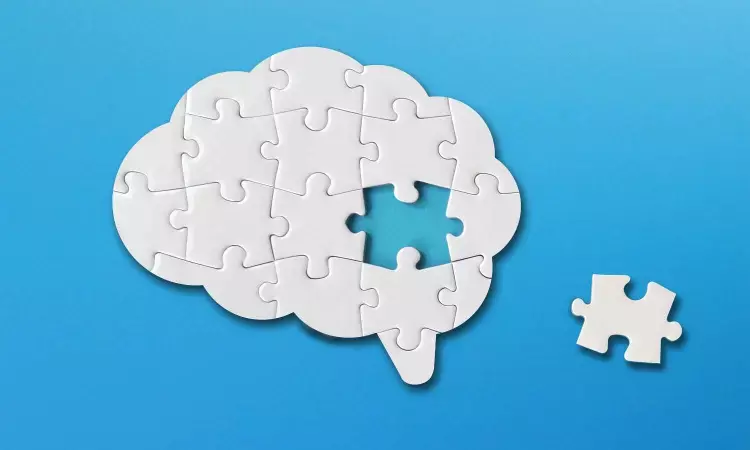- Home
- Medical news & Guidelines
- Anesthesiology
- Cardiology and CTVS
- Critical Care
- Dentistry
- Dermatology
- Diabetes and Endocrinology
- ENT
- Gastroenterology
- Medicine
- Nephrology
- Neurology
- Obstretics-Gynaecology
- Oncology
- Ophthalmology
- Orthopaedics
- Pediatrics-Neonatology
- Psychiatry
- Pulmonology
- Radiology
- Surgery
- Urology
- Laboratory Medicine
- Diet
- Nursing
- Paramedical
- Physiotherapy
- Health news
- Fact Check
- Bone Health Fact Check
- Brain Health Fact Check
- Cancer Related Fact Check
- Child Care Fact Check
- Dental and oral health fact check
- Diabetes and metabolic health fact check
- Diet and Nutrition Fact Check
- Eye and ENT Care Fact Check
- Fitness fact check
- Gut health fact check
- Heart health fact check
- Kidney health fact check
- Medical education fact check
- Men's health fact check
- Respiratory fact check
- Skin and hair care fact check
- Vaccine and Immunization fact check
- Women's health fact check
- AYUSH
- State News
- Andaman and Nicobar Islands
- Andhra Pradesh
- Arunachal Pradesh
- Assam
- Bihar
- Chandigarh
- Chattisgarh
- Dadra and Nagar Haveli
- Daman and Diu
- Delhi
- Goa
- Gujarat
- Haryana
- Himachal Pradesh
- Jammu & Kashmir
- Jharkhand
- Karnataka
- Kerala
- Ladakh
- Lakshadweep
- Madhya Pradesh
- Maharashtra
- Manipur
- Meghalaya
- Mizoram
- Nagaland
- Odisha
- Puducherry
- Punjab
- Rajasthan
- Sikkim
- Tamil Nadu
- Telangana
- Tripura
- Uttar Pradesh
- Uttrakhand
- West Bengal
- Medical Education
- Industry
Can Lingering Effects of Mild Case of COVID-19 Change Your Brain?

People with long COVID who experience anxiety and depression months after a mild case of COVID-19 may have brain changes that affect the function and structure of the brain, according to a preliminary study released today, February 20, 2023, that will be presented at the American Academy of Neurology’s 75th Annual Meeting being held in person in Boston and live online from April 22-27, 2023.
“There is still much to learn about long COVID, which includes a wide range of health problems, including anxiety and depression, months after infection,” said Clarissa Yasuda, MD, PhD, of the University of Campinas in São Paulo, Brazil. “Our findings are concerning, as even people with a mild case of COVID-19 are showing changes in their brains months later. More studies are needed to hopefully identify treatments to prevent any long-term effects on people’s quality of life.”
The study involved 254 people with an average age of 41 who had a mild COVID-19 infection an average of three months earlier. Participants completed tests to assess symptoms of depression and anxiety. A total of 102 people had symptoms of both anxiety and depression and 152 people had no symptoms.
Participants also had brain scans. Researchers looked at damage to the brain’s gray matter to determine if there was brain shrinkage. They also compared the brain scans of the people with COVID-19 with the scans of 148 people who did not have a COVID-19 infection.
The people with COVID-19 and anxiety and depression had shrinkage in the limbic area of the brain, which plays a role in memory and emotional processing, while the people who had COVID-19 without anxiety and depression and the people without COVID-19 had no brain shrinkage.
Researchers also looked at brain function and changes in connectivity-how the brain communicates-between areas of the brain. Using a special type of software to analyze brain networks with resting-state brain activity, they looked at 84 people from the asymptomatic group, 70 people from the anxiety and depression group, and 90 people who did not have COVID-19.
Researchers found that the group with both symptoms of anxiety and depression had widespread functional changes in each of the 12 networks that were tested, while the group without symptoms showed changes in only five networks.
“Our results suggest a severe pattern of changes in how the brain communicates as well as its structure, mainly in people with anxiety and depression with long COVID syndrome, which affects so many people,” Yasuda added. “The magnitude of these changes suggests that they could lead to problems with memory and thinking skills, so we need to be exploring holistic treatments even for people mildly affected by COVID-19.”
Reference:
American Academy of Neurology’s 75th Annual Meeting.
Dr Kamal Kant Kohli-MBBS, DTCD- a chest specialist with more than 30 years of practice and a flair for writing clinical articles, Dr Kamal Kant Kohli joined Medical Dialogues as a Chief Editor of Medical News. Besides writing articles, as an editor, he proofreads and verifies all the medical content published on Medical Dialogues including those coming from journals, studies,medical conferences,guidelines etc. Email: drkohli@medicaldialogues.in. Contact no. 011-43720751


